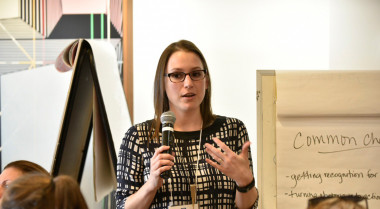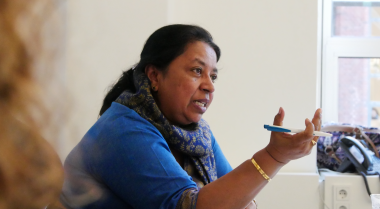
WOSCAP Report on Civil-Military Synergies in EU Action
WOSCAP (Whole of Society Conflict Prevention and Peacebuilding)* is a project aiming at enhancing the capabilities of the EU to implement conflict prevention and peacebuilding interventions through sustainable, comprehensive and innovative civilian means. It assesses current capabilities, and identifies gaps, best practices, lessons learned and research priorities. The WOSCAP consortium brings together academic institutions with peacebuilding practitioners. GPPAC is the project coordinator and GPPAC members participate as associates, supporting the project with a wide pool of experienced practitioners in the area of conflict prevention.
Since the Nice European Council meeting held in 2000, civil-military synergies have become a serious goal of the EU's approach to crisis management and peacebuilding. This report navigates the conceptual fuzziness surrounding the term ‘civil-military synergy' at strategic and operational levels in the EU. The report is based on secondary data collected through an extensive phase of desk-based research, as well as empirical data which has been collected during a series of face-to-face engagements with practitioners of civil and military backgrounds, including those who have served in EU CSDP missions, individual country level peace missions and multinational peace operations.
Based on several discussions held with the practitioners, this report offers the views and experiences shared on the salient practices of civil-military synergies at the operational level. Based on practitioners' first hand field level experiences, civil-military synergies are more likely to occur in short term missions (i.e., stabilization) with clearly defined mission goals, often carried out in a less crowded operational environment and under a clear command structure and leadership. Grounded in the key learning from these short term missions, practitioners underline the need for improved resources (materially, financially as well as human) and their timely mobilization and flexibility of deployment. They regard processes of coordination, cooperation and coherence of the EU capabilities throughout the operational cycle of a mission and beyond, as key for fostering civil-military synergies at the operational level. To this effect, they also assigned a great importance to the individuals and the leadership styles of mission staff as key ingredients of synergies. The report puts forward key recommendations for effective civil-military synergies at the operational level in EU external missions. It also offers suggestions on how to operationalise these main recommendations and provides steps the EU should take to foster civil-military synergies at the operational level.
See the full report here.
* WOSCAP has received funding from the European Union's Horizon 2020 research and innovation programme. This report only reflects the views of the author(s), and the EU is not responsible for how the information may be used.


